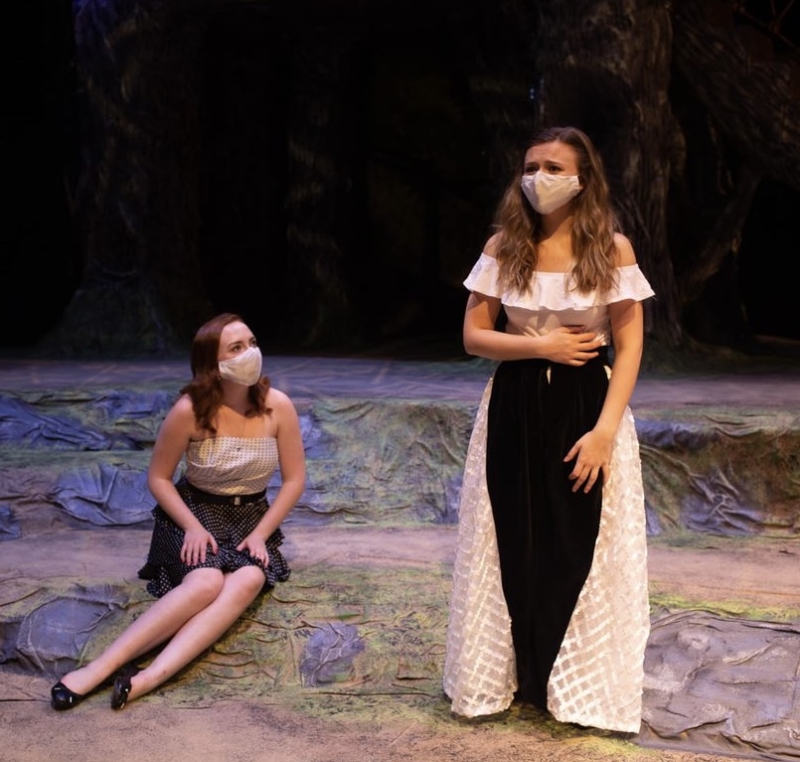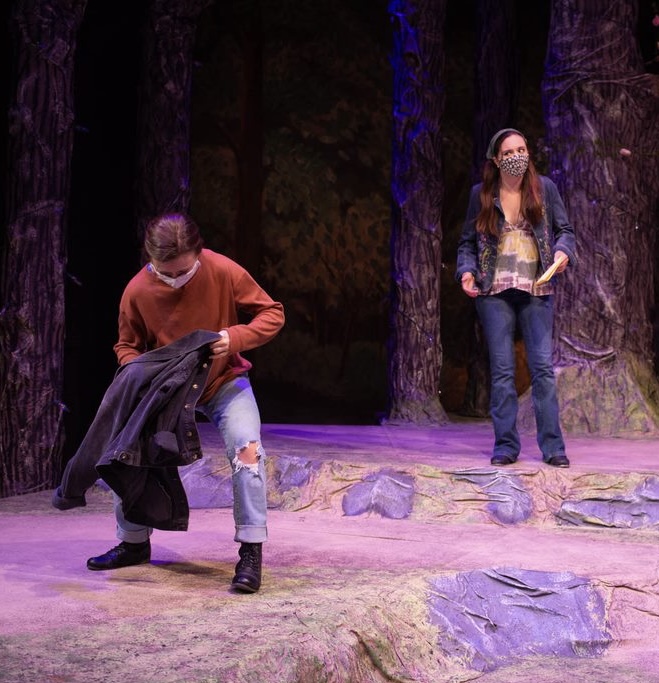Student Blog: God, I Love Shakespeare!
I was not aware of how deeply those timeless themes could resonate within someone.
I have referred to my experience in As You Like It as a transformative one. Portraying Rosalind is one of my proudest moments as a performer. I found parts of myself as a woman and as an artist through the process. It was the first time I was willing to let my technique and philosophy of acting shape my performance. While it was an important experience in my development, I cannot help but question how my current approach would shape a performance now. It has always been very clear to me that the themes expressed in his plays are still relevant to modern understandings of love, lust, war, and honor. Without the relatability to human nature, modern retellings, reinterpretations, or traditional revivals would lack impact. Nonetheless, I was not aware of how deeply those timeless themes could resonate within someone.

classical text understandable- great in
theory, but it doesn't always celebrate the
language. (PC: Justin Bivens)
When I first read for Rosalind at the callbacks, I scrambled to process the text, and speak with enough variety and inflection that someone else could understand, though it is hard to explain thoughts you can't yet decipher. My comprehension of Shakespearean text came through the slow, meticulous analysis of his plays as literary works. Though it was a great aid, my academic experience only got me so far. I strived to gather as much information as I could about the text so I could speak with honesty. By the time I had reached opening night, I could see every wild metaphor I spewed out like I wrote it myself. It sounds dramatic, and perhaps it is a little, but I became enveloped in the text and understood Rosalind like the back of my hand. I thought I understood, at least.
The conclusion I have come to, as I'm studying Shakespearean text both literarily and artistically, is that I was so far from knowing the character intimately. I may have become Rosalind to the best of my ability at that time, but there was a complexity that I lacked at the time and am starting to gain now. By no means am I attempting to discredit my successes, because there is value in those. However, I find it astounding how rich Shakespearean text is, and I am almost dumbfounded that I performed in As You Like It without my current mindset. I believe I started to break down barriers to play authentically during that show. I also believe that I missed preparatory work that would have enriched my performance even further. I am learning the "proper" way to approach this kind of text, and it is more investigative than I ever imagined.

comedy, which was somewhat uncomfortable
for me in the beginning. I learned a great deal in
how to evaluate what lands and what doesn't.
(PC: Justin Bivens)
While working on my newest monologue, one spoken by Portia in The Merchant of Venice, I was troubled by my own feelings. My professor saw right through my façade and asked me how I truly was. We discussed the energy present within me, which brought me to the verge of tears. He asked me to speak out of this emotion- to start communicating at the heightened state I entered. I felt like a pot that was filled to the brim with water and starting to boil over. Small tears would slip down my cheek, out of the frustration and distress I had stirring inside me. I struggled to keep my composure while saying words that were taking on new meaning. My professor asked me to repeat a few lines over, commanding that I lower my voice, abandon my premeditated choices, and speak honestly. I trudged through the text, trying to let the scoring of syllables and analysis of rhyme be only unconscious support. When I finished, I felt the emotion drop from within me. This exercise brought a tone to the monologue that I had not predicted, though it was cathartic. Among the commentaries I received was the reminder that the need to communicate should always be more significant than the emotional life inside. Though my feelings were prominent and intense, I needed to care more about what I was saying and why I needed to say it. He instructed me that this approach was the degree of vulnerability needed to successfully fulfill the large undertaking of classical text. As I sat down, I wrote down all the guidance I could remember from this groundbreaking experience.
.jpg)
Ideally, I would love to explore the speed of her mind
and her tactics to compose herself even more
thoroughly. (PC: Justin Bivens)
Reflecting on the coaching has revealed the growth I have made as an actor. I have pushed myself to be more open to the text, but I was not truly aware of my development until that moment. My appreciation for Shakespearean texts has only been deepened by new technical and vulnerable approaches. These plays and characters are so beloved and still so well-known because they depict humanity. The challenge for the actor is to be so in touch with their own humanity that they can sense the bold emotions of their character, while still prioritizing communication, so that audiences can relate to that humanity. Though my effort was valiant, I am simply so much more aware of the unguarded dedication necessary to do the language true justice.
Comments
Videos


